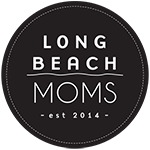Autism: One Parent’s Journey
Anonymity
Motherhood is my personal experience, but it’s also very much about my child’s life. He has a right to control what information is shared with the public, which is something that took some time for me to understand. Because I’m sharing this outside of my friends/family circle, I chose to write this anonymously. We’re a family that’s very proud to stand up and be counted in the Autistic community, but my child’s experience is not mine to share.
I thought long and hard about what to include in this blog. How could I possibly sum up everything important to share about Autism in a single post? I can’t. There’s just no way. What I can do is try to break down my personal journey of awareness, acceptance, appreciation, empowerment, and activism.
Insert Autism Here
Just over seven years ago, our son was diagnosed with ASD (Autism Spectrum Disorder) when he was 18 months old. There were earlier signs of Autism, but that’s when he was first evaluated and formally diagnosed. I vividly remember every moment and feeling throughout the hours and weeks of this process.
My husband and I cried when the psychologist went over the ASD criteria and explained that our son was on the spectrum. It’s difficult to put those emotions into words, though I can still feel it all just as intensely now as I’m writing this. On one hand, it was a strange relief. This had a name, and we weren’t overthinking things. We could understand and help him. On the other hand, we were devastated that a professional saw it so easily. What did this mean for his future? We were starting at ground zero. Here’s one thing I can say for sure… we had the exact same child before and after his diagnosis. The difference was that we instantly knew him better.
You Don’t Know What You Don’t Know
I recently attended a virtual Conscious Parenting workshop where the parenting coach asked us all what our hypothetical/fantasy child and parenting looked like before becoming parents. Having nothing to do with Autism, not a single parent’s hypothetical looked anything like their reality. Surprise! None of us sat around fantasizing about the difficulties of raising children, and we all imagined that we’d be naturally great parents! HA!
It might not be what you expected, and it’s okay to have feelings about that. Autism adds an extra layer of the unknown to this. Finding your Autism community for a shared experience is everything.
Where to Start
If you want to learn more about Autism and the Autistic community (and you really should), go directly to the source. I cannot stress the importance of centering Autistic voices enough! Seek out #actuallyautistic individuals and organizations that promote and include Autistic people in their leadership.
The Thinking Person’s Guide to Autism is a great place to start.
Jess from A Diary of a Mom is an incredible resource and advocate from a parenting perspective, who uses her platform for good.
Acceptance and Appreciation
Many professionals suggest Applied Behavior Analysis (ABA) Therapy is a must for helping your Autistic child. This therapy is generally recommended from 10-20 hours per week. PER WEEK! I encourage you to really investigate this and hear what many Autistic adults have to say about their experience with ABA. The criticism is broad, but what really stands out to me is the desire to make Autistic children “indistinguishable from their peers”. Imagine the harm in teaching people from a very early age that the way they exist in the world is wrong.
Neurodiversity is essential to our society. We need differently wired brains, and creative, unconventional thinkers. We can’t all fit into neat little boxes. The more you learn about Autism, the more you learn to respect it…and everyone deserves respect. Behaviors and movements might look different than what we’re used to, but that doesn’t make them wrong. If anything, it’s a learning opportunity for the neurotypical, and something to be celebrated!
Autism Doesn’t Look a Certain Way
I can’t begin to say how many times someone has said “he doesn’t look Autistic” to me about my child. At first, I was offended by this. It felt like my judgment as a mother was being questioned. I don’t think it was meant in a bad way. In fact, I think it was sometimes even meant as a compliment. How weird is that? The bottom line is that Autism likely isn’t really what you think it is.
Unless you’re Autistic, have a close Autistic family member or partner, a particularly close friend, or you regularly work with Autistic individuals, you likely don’t know much about Autism. Outside of those scenarios, you simply haven’t had the opportunity. To really know Autism is to be fully immersed. Knowing one Autistic person is just that. You know one Autistic person. Just like everyone else in the world, every single Autistic person is different. Sometimes wildly different! In fact, there are many contradictory Autistic traits.
Labels
The CDC estimates that 1 in 54 children are on the Autism spectrum. Spoiler alert – children grow up to be adults. We tend to shy away from labels, worrying that we’re drawing attention to differences. But I think our kids already know that they’re different. Labels can be empowering. The following quote perfectly explains this (albeit with some colorful language – gasp – please forgive!) and forever changed my point of view.
One day, almost out of nowhere, as an afterthought, an aside, something barely worth mentioning because it is so obvious, a doctor says, ‘by the way, you’re a penguin.’
Holy shit. You’re not a failure. You’re a penguin. You’re not lazy or stupid or weak. You don’t have messed-up values. You’re a penguin. You have always been a penguin.
There’s nothing wrong with you, you’re a beautiful penguin. The most perfect penguin. But it’s just a fact, penguins can’t fly.
Now when you’re with your sparrow friends and they’re all sitting in nests, you sit in a bucket of ice. Mostly you bring your own. Some bird restaurants are really accommodating and will bring you a bucket of ice to sit in. Sometimes mean birds give you shit about your bucket, but it doesn’t hurt as much as it did before, because you know you’re a penguin and you’re just exactly what a penguin is meant to be.
You give yourself permission to stop trying to fly. Not falling all the time improves your mood and overall function. You finally feel confident declining when invited to flying outings. You don’t waste the energy feeling guilty about it.
You love your family of sparrows, but you also find a whole community of penguins to love too. Things you thought were just you, like preferring fish to birdseed, things you thought you were totally alone in and wrong for, are common and accepted. Some are even admired. Your new penguin friends think your flippers and chubby penguin belly are lovely. You bond over how and when you discovered you loved swimming.
Knowing you’re a penguin means knowing where you fit in a world you never felt like you fit into. It means all the things penguins can’t do, it’s not a personal failing when you can’t do them. You’re not supposed to be able to. You can do other things instead. Sparrows are actually quite poor swimmers. You feel good about the things you excel at.
This is why I think labels are important. This is why I think ‘we’re all birds, let’s focus on our similarities instead of our differences’ is harmful. This is how my autism diagnosis was like breathing, after holding my breath for 26 years.”
Unfortunately, I don’t know the original author or source. I’ve searched and searched to give this person proper credit for such powerful insight and writing.
What I Know Now
My Autistic child has made me a better person. A world of information, acceptance, patience, and appreciation for differences has opened to me as a direct result of learning more about Autism. And I’m forever grateful.





